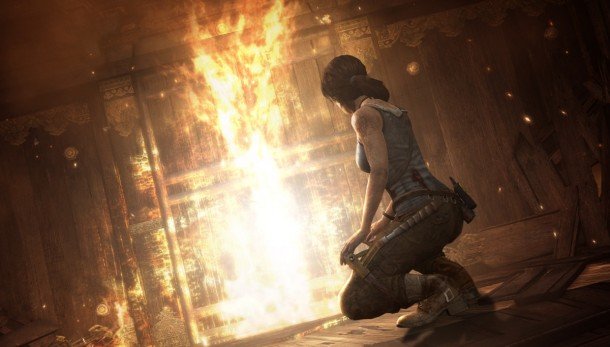Tomb Raider PC settings overview: any port in a storm?

Good news, everyone. Having played a couple of hours of Crystal Dynamics' Tomb Raider reboot following its release last night, it looks like the PC version lives up to the standards set by Nixxes' successful work porting Deus Ex: Human Revolution and Sleeping Dogs. It's a really good looking game, and it caters to PC gamers who want to tinker.
Rather than run through the options here, I've produced a short video showing them off - plus a bonus side-by-side comparison of Lara's normal hair and her hair with AMD's TressFX tech enabled. Sorry about the audio quality - blame the midnight launch and my headset microphone.
[VAMS id="85vWfwot9xC22"]
I'll be posting a full review later this week but so far my feelings are mixed. It's strictly linear and many sequences won't accept any input from the player other than the one that makes Lara go forwards. QTEs abound and there's a brief instant-fail stealth sequence in the first hour.
I don't have a problem with a scripted experience if it delivers something well-directed and meaningful and there's still time for Tomb Raider to live up to that, but so far the game has mostly succeeded in making me feel uncomfortable: not in the sense that I'm sharing Lara's pain, but that I'm the asshole pushing forwards on the analogue stick and watching her suffer. She does have very fancy hair, though.
Update: This footage was taken on a machine with an ATI Radeon HD 6970. Running the game on a comparable machine with a GeForce GTX 560 Ti, there's a substantial performance hit with TressFX enabled - so much so that it's unplayable. The 6970 is a more powerful card, but not by a huge margin - I wonder how much of this is down to TressFX being AMD's proprietary tech. If you're running a GeForce card, you may need to disable Fancy Hair.
Keep up to date with the most important stories and the best deals, as picked by the PC Gamer team.
Joining in 2011, Chris made his start with PC Gamer turning beautiful trees into magazines, first as a writer and later as deputy editor. Once PCG's reluctant MMO champion , his discovery of Dota 2 in 2012 led him to much darker, stranger places. In 2015, Chris became the editor of PC Gamer Pro, overseeing our online coverage of competitive gaming and esports. He left in 2017, and can be now found making games and recording the Crate & Crowbar podcast.


